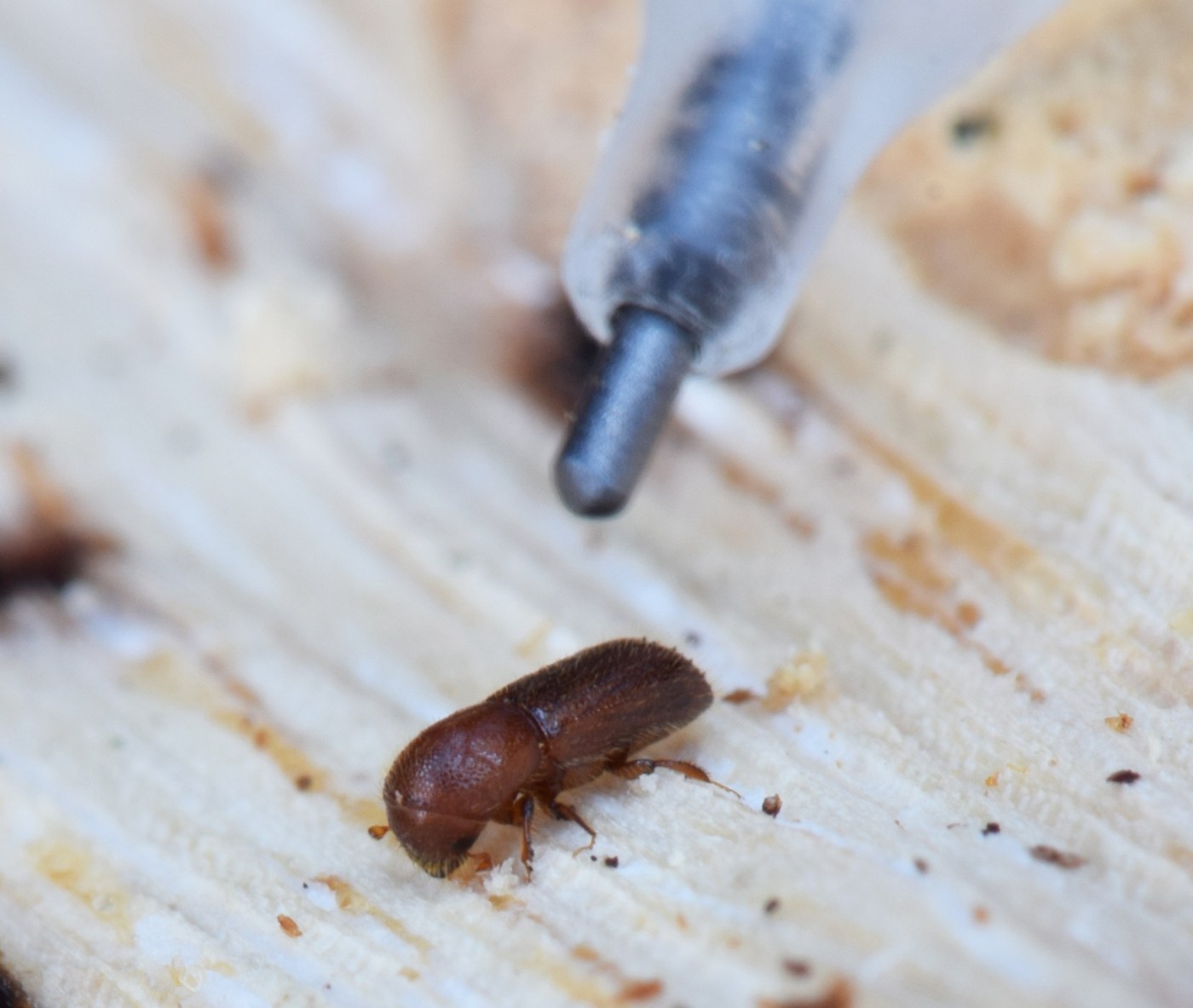
An invasive beetle species with a taste for oak trees has been detected in Novato.
The county agriculture department announced the discovery of Mediterranean oak borers on Monday and called upon the public to watch for them in their yards.
The bugs are about 3 millimeters long and can bore tunnels into trees. The species can also harm trees by infecting them with pathogens from the fungus they carry and feed upon. Infestation can spread to a tree’s trunk and ultimately kill the plant, the county said.
Related Articles
Nuclear waste: Texas’ loss could be California’s gain
Natural disasters may be shaping babies’ brains
Plan to rebuild Big Basin Redwoods State Park after devastating fire nears completion
How Donald Trump Is turning the US into an EV laggard
First methane-powered sea spiders found crawling off California coast
“The pest typically targets already stressed valley oaks, weakening them further and making large limbs brittle and prone to breakage,” said Scott Wise, Marin’s assistant agriculture commissioner.
The beetles were discovered in Napa County in 2019 and since have been found in nine California counties. The species is native to Europe, North Africa and the Middle East.
“Education about the beetle is important, but unfortunately it can’t be eradicated and it’s becoming more widespread in our area,” Marin County Agriculture Commissioner Joe Deviney said. “It was only a matter of time for the presence of this invasive pest to be confirmed in our county.”
Michael Jones, a forest adviser for the University of California Cooperative Extension, said it’s unknown how the species arrived in Marin. He said the beetles fly and also travel on firewood or yard trimmings being sent to green waste sites.
Jones said the species can be difficult to detect because they are so small.
Signs of infestation include a decline in leaf growth, boring dust in the cracks of tree bark and oozing sap, according to University of California Agriculture and Natural Resources.
Wise said the state does not order quarantines in areas infested with the beetles because the species is not classified as a direct threat to crops or the agricultural economy. He said the best tools against infestation are prevention, proper tree care and minimizing the spread.
“Importantly, pesticides are not currently recommended,” Wise said. “Ongoing research is investigating possible chemical controls, but at this time, the risks outweigh the potential benefits.”
Jones said property owners should destroy infested materials on site to reduce the spread of the beetles.
University of California Agriculture and Natural Resources says destruction methods include cutting stumps low to the ground and then covering then with soil; chipping infested wood as small as possible; and burying large materials with at least 8 inches of soil.
Marin homeowners who encounter possible infestations should contact a certified arborist who can assess the tree’s condition and offer guidance, Wise said. He said the county was notified about the Novato case after a homeowner met with an arborist, who then contacted the UC Cooperative Extension in Marin.